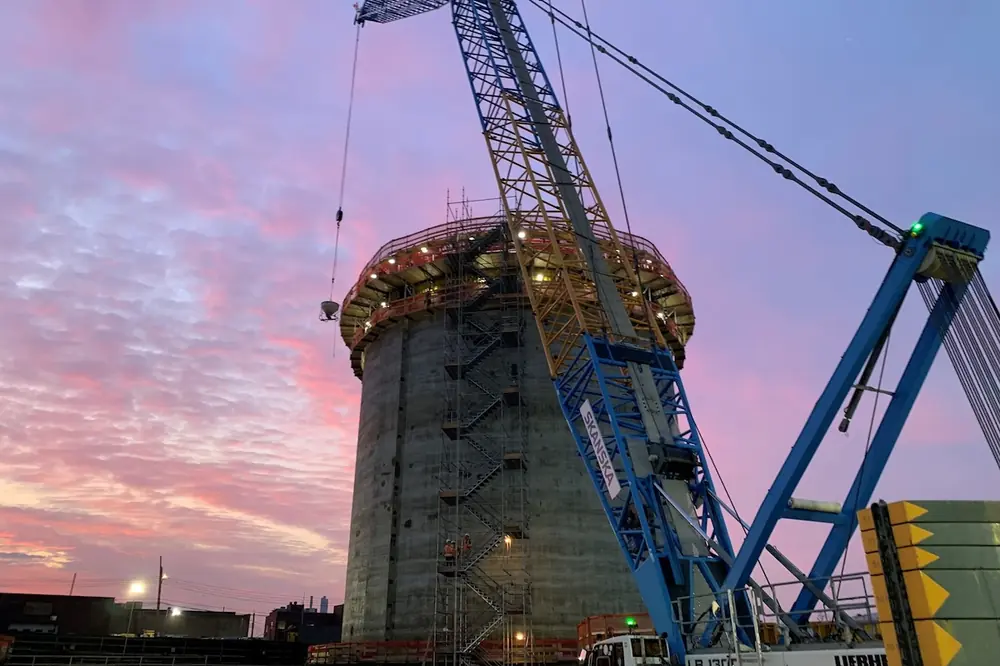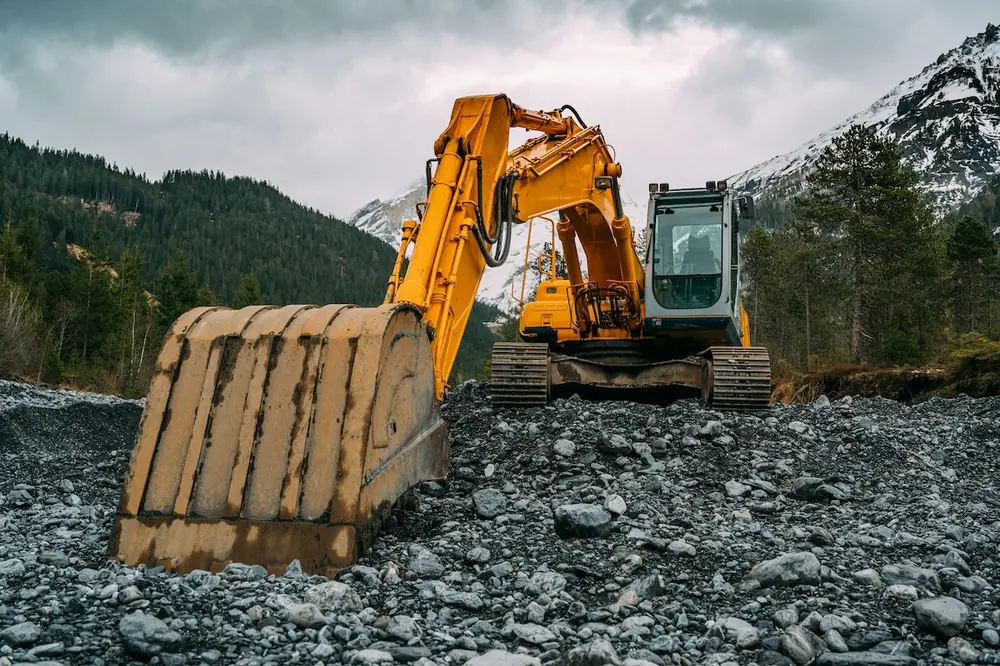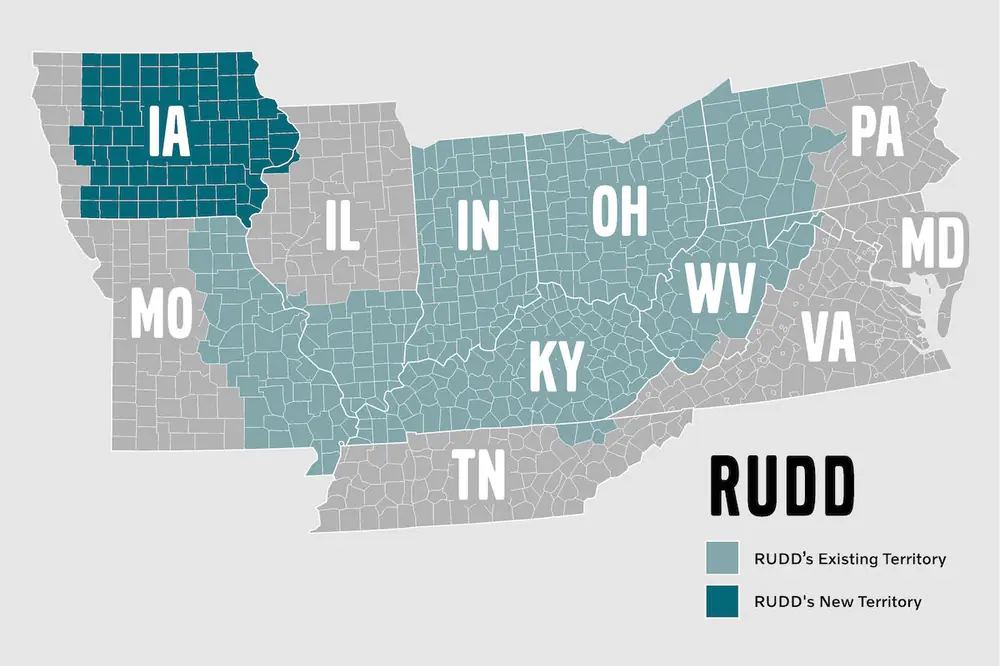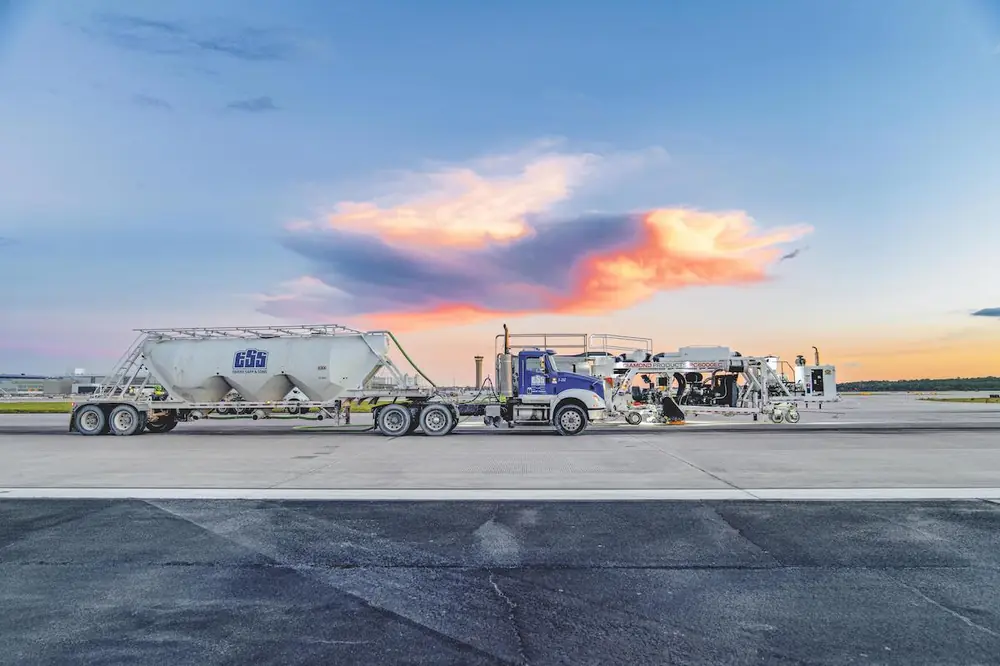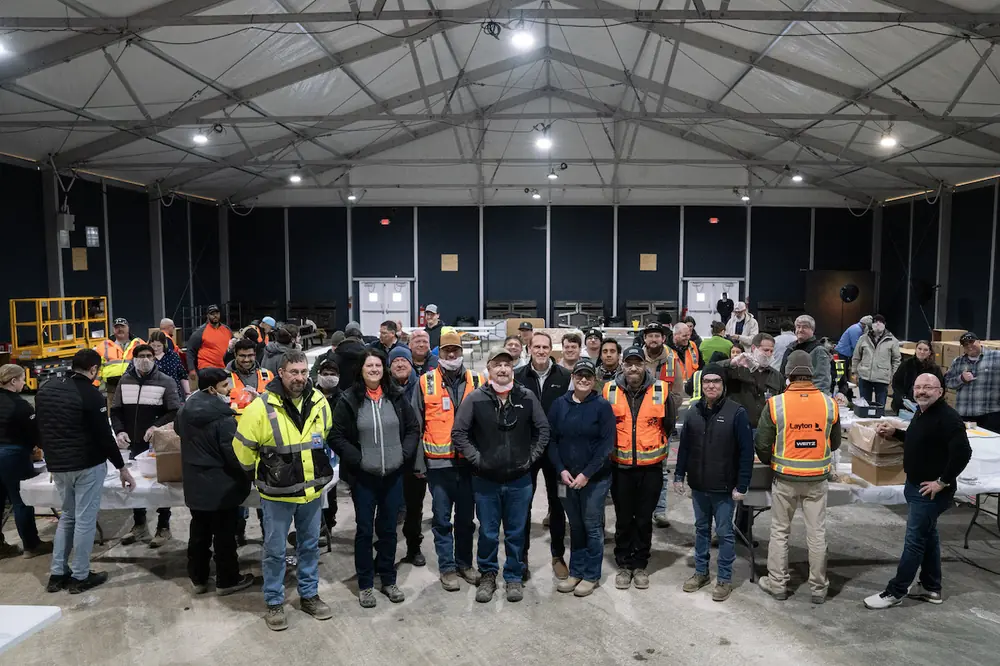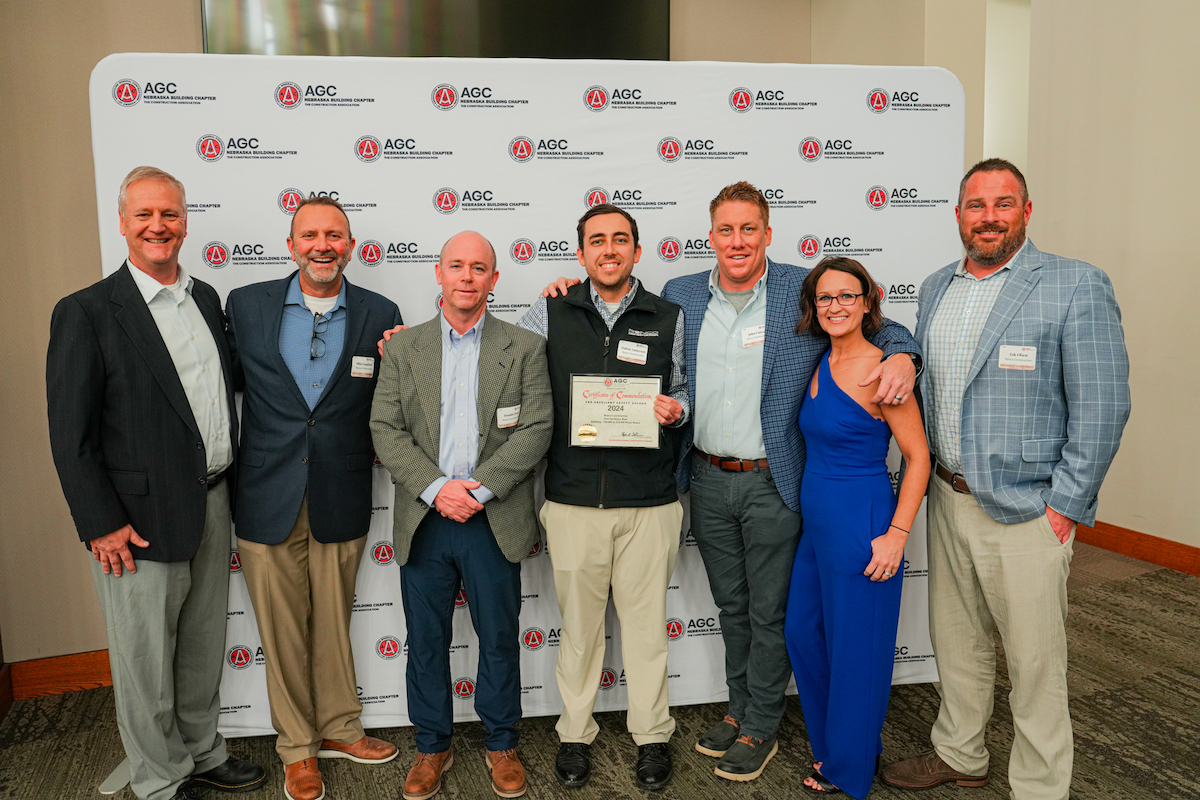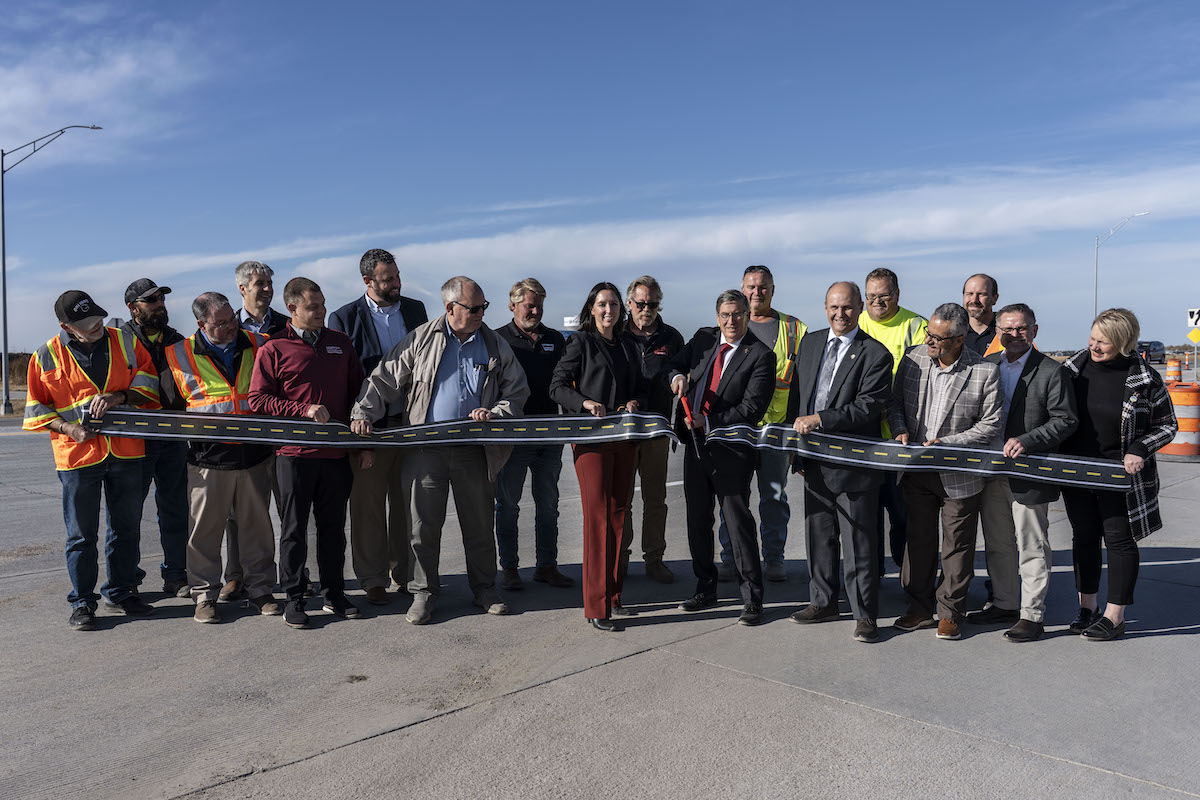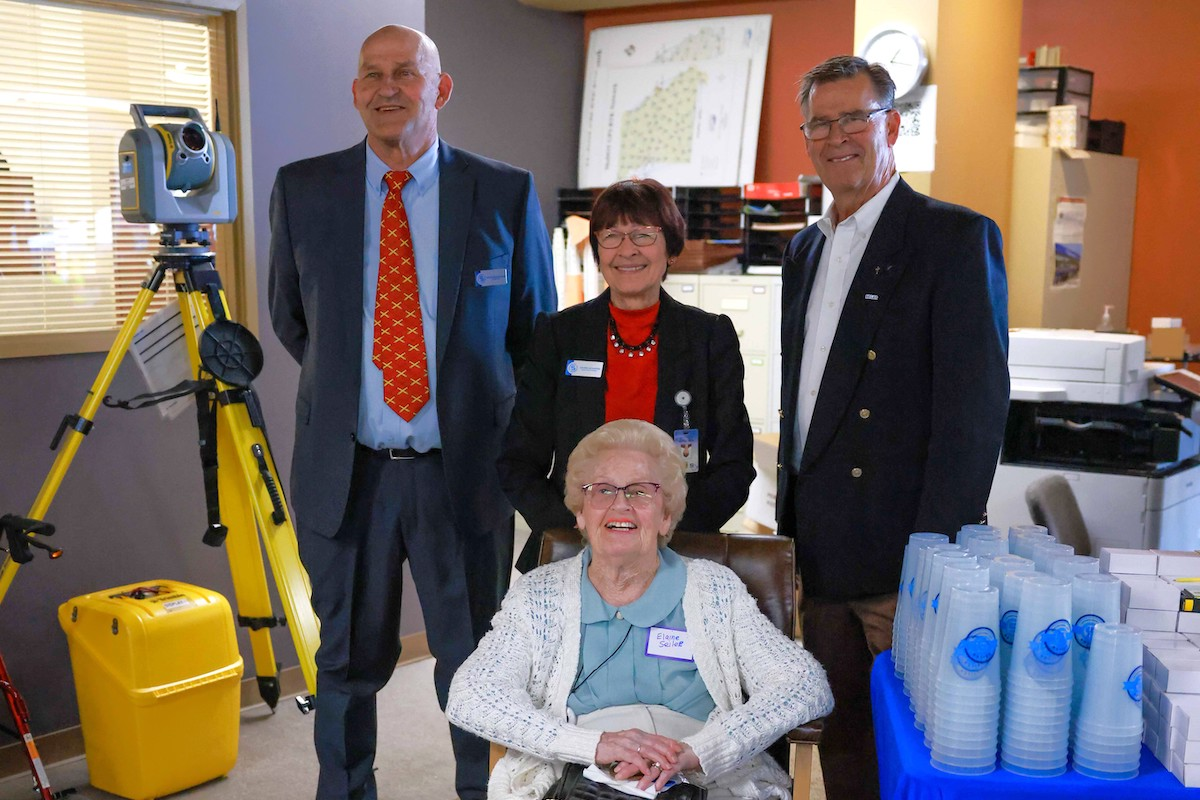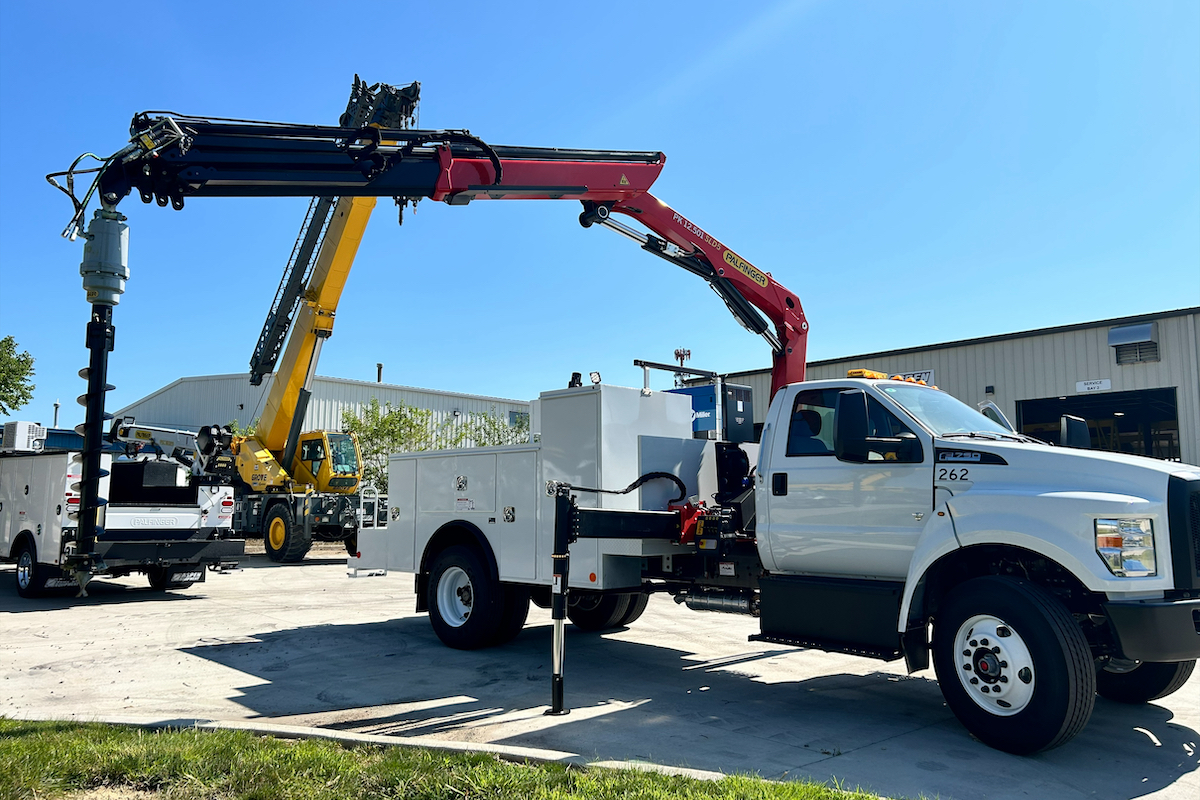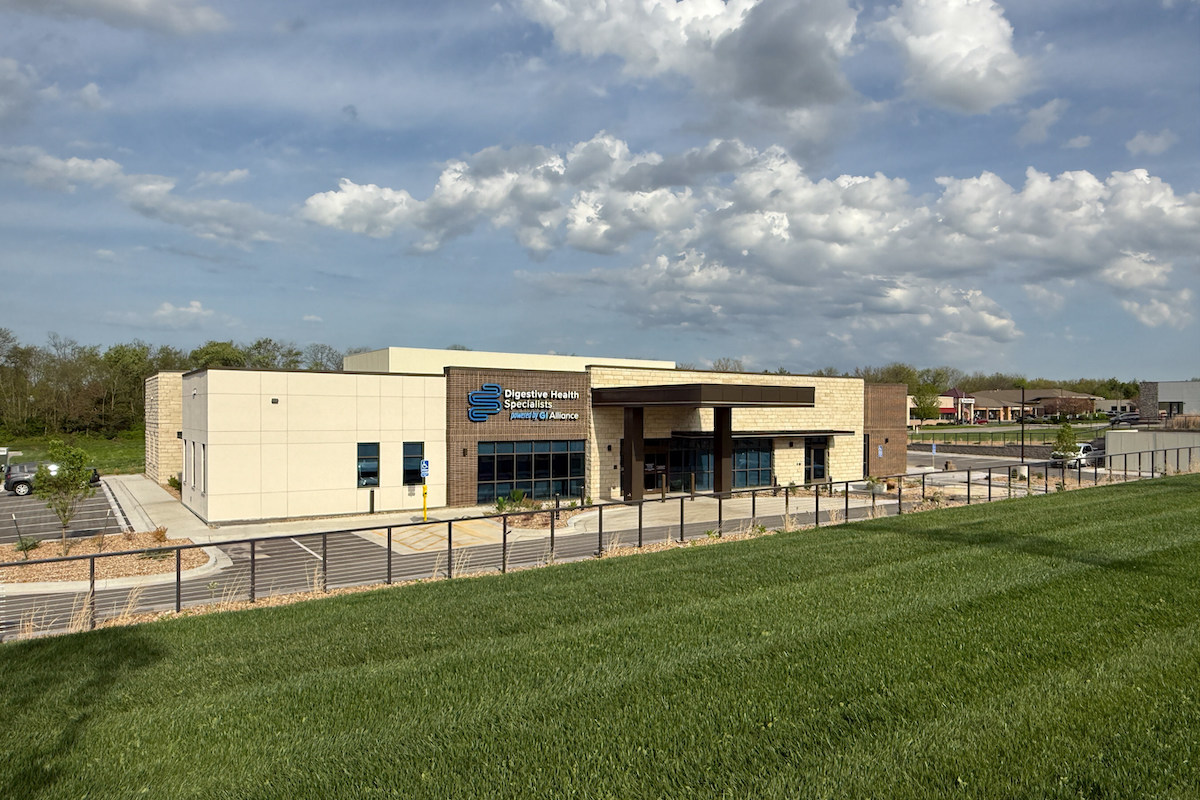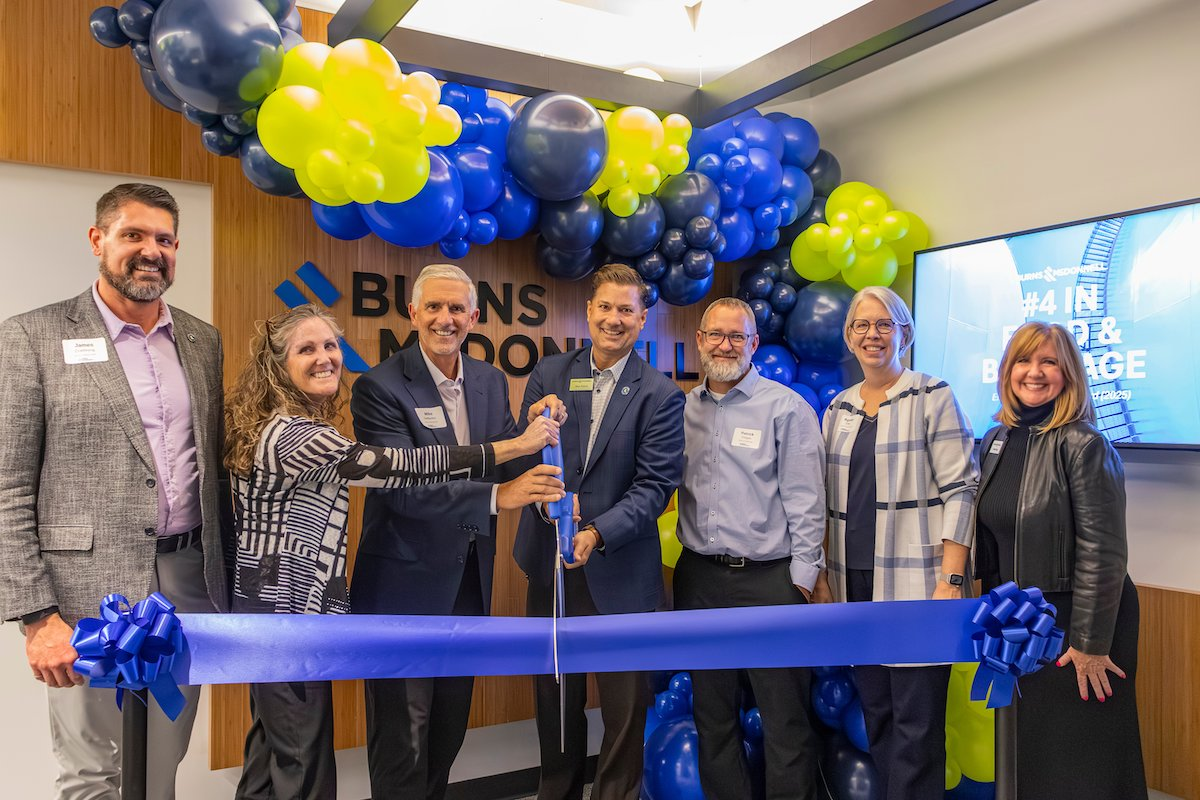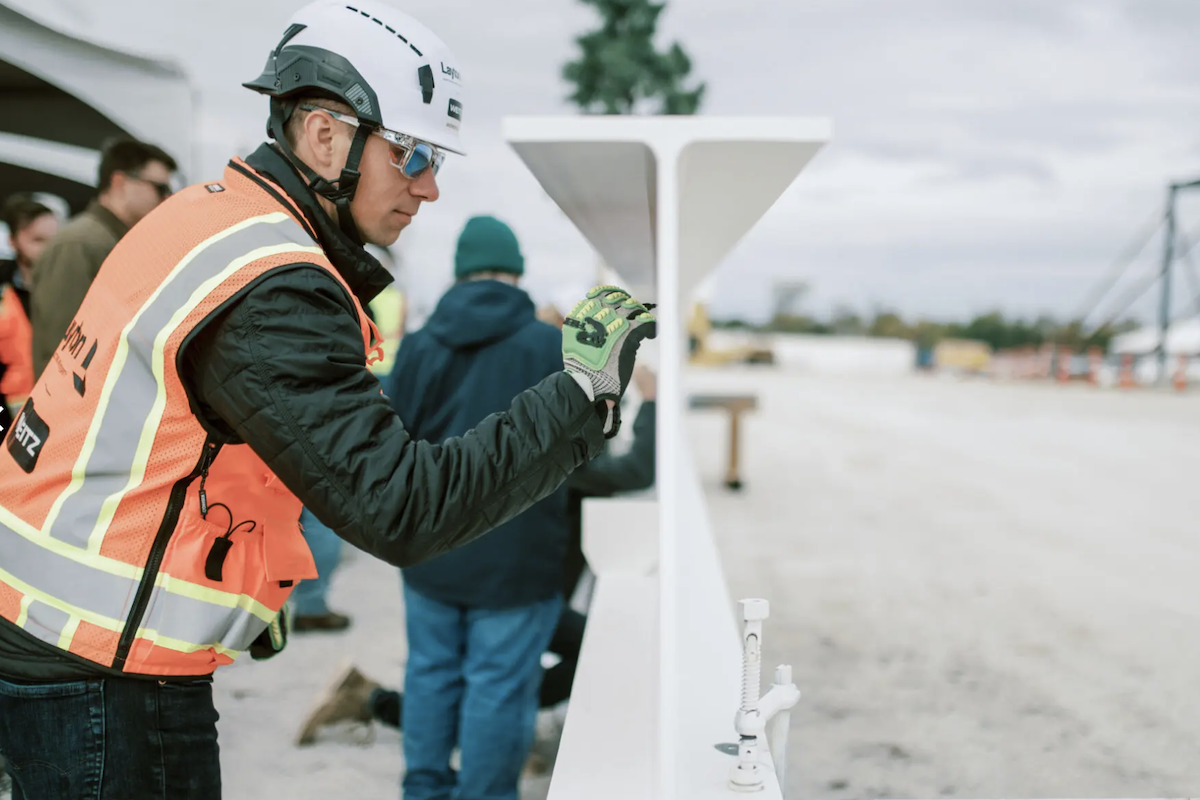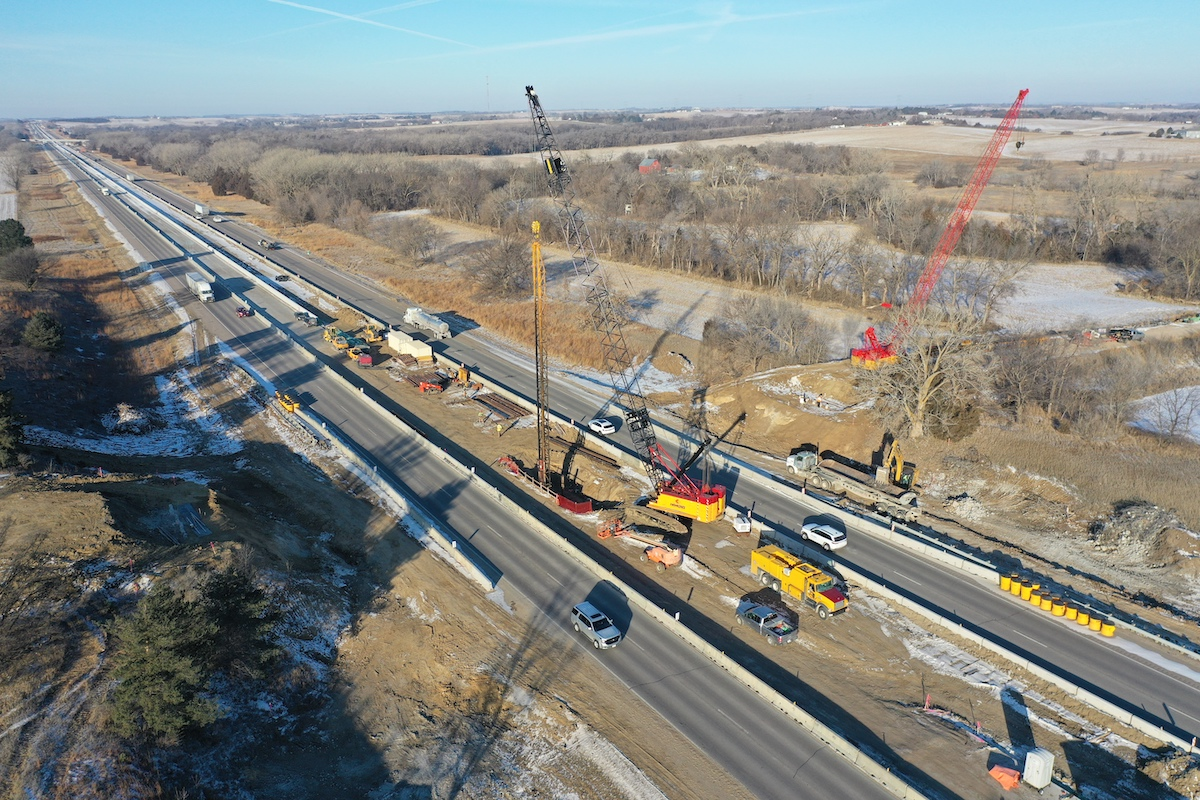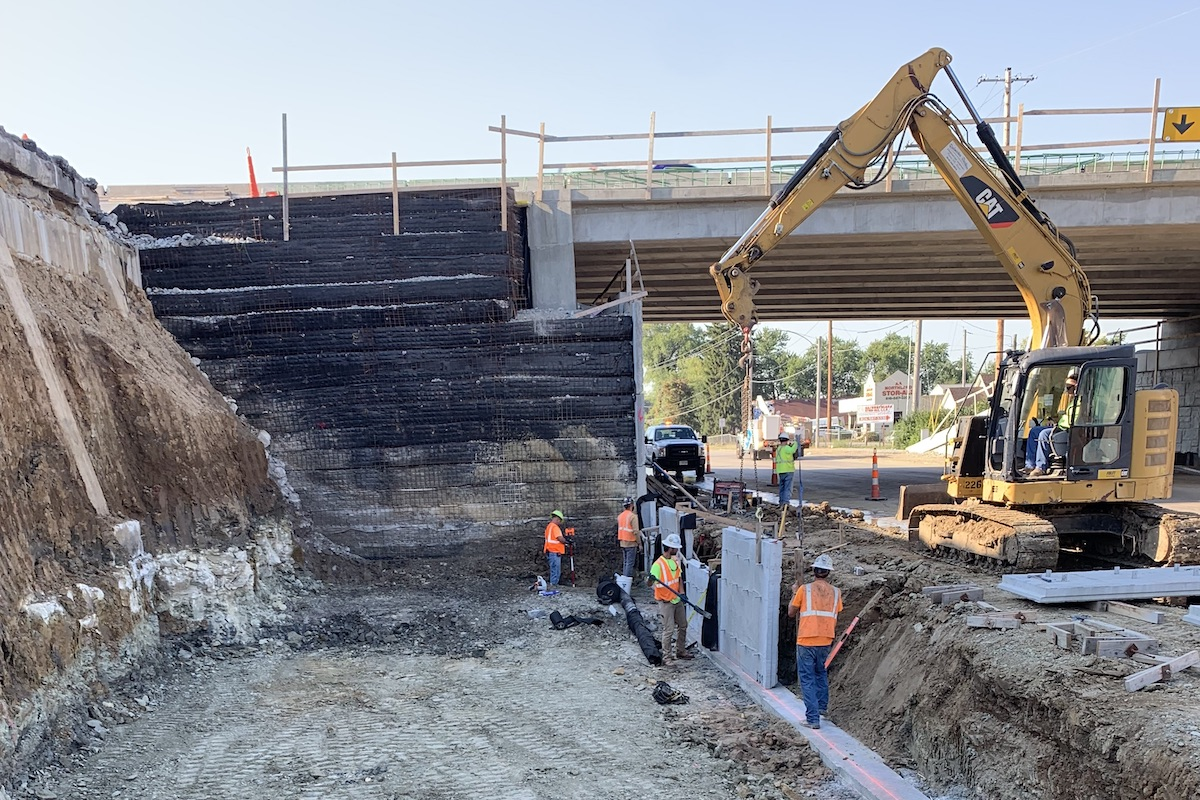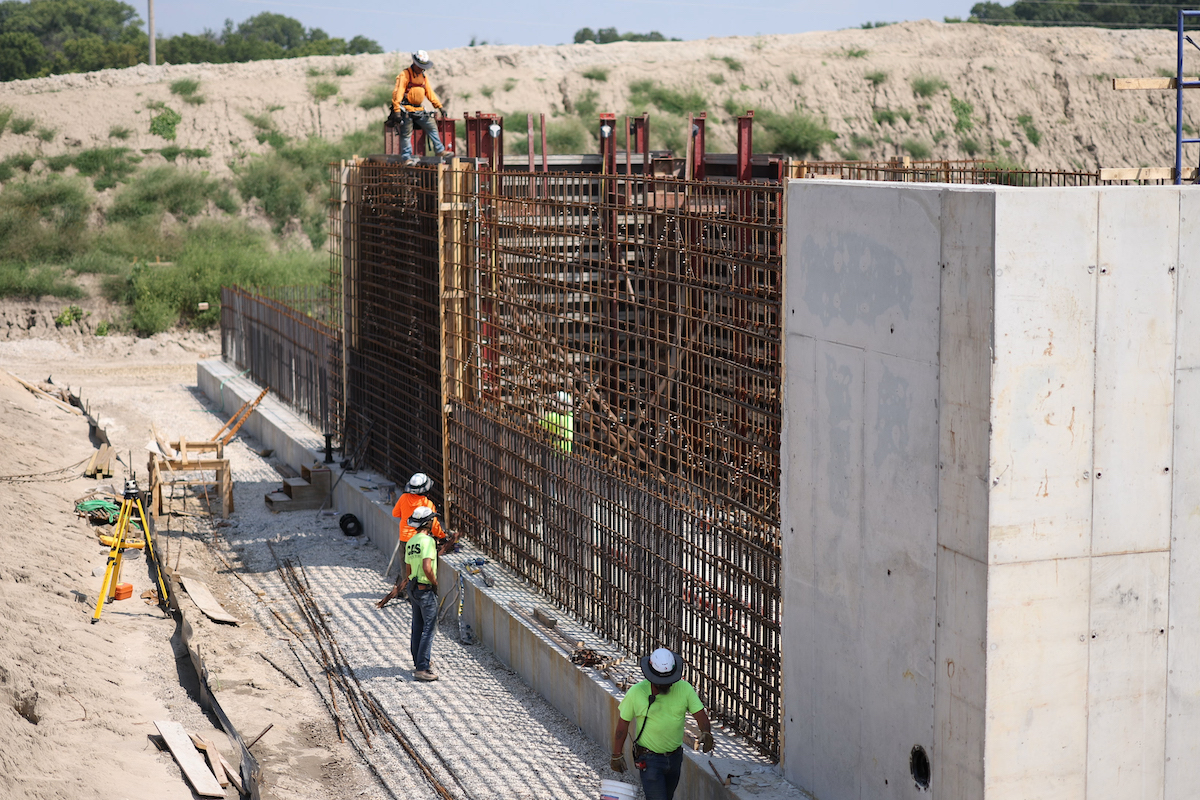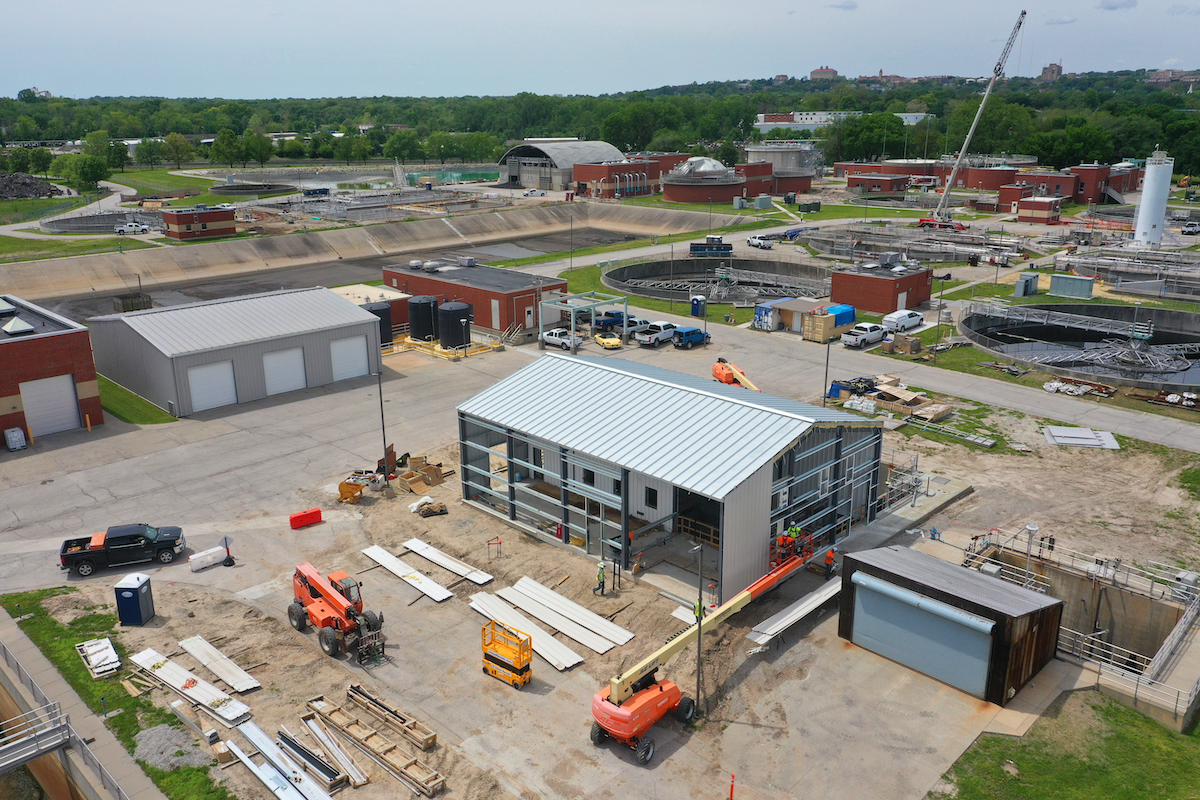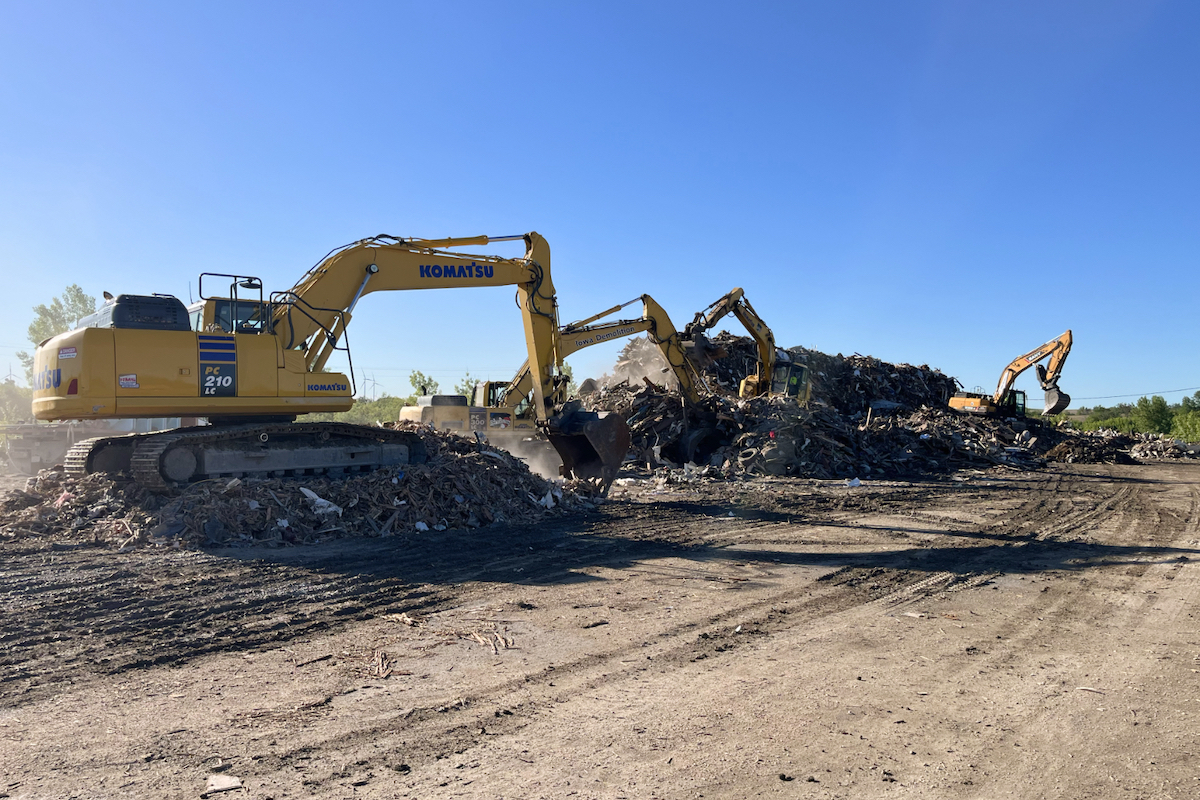The central truss, the largest of the three, was raised 3 feet, 4 inches, at a rate of 18 inches per hour. The east and west trusses are smaller than the central, and required less time to raise. A crew of 14 Barcus employees was on site during the raising process. Daniel Gibson, Project Manager for Barcus, said that it was necessary to increase the height of the bridge to meet current 750-year flood standards set by the U.S. Army Corps of Engineers (USACE).
In raising the bridge, Barcus used a combination of old and new equipment, materials, and technology. After the Flood of '51, USACE hired Barcus to install screw-lift gates capable of raising the three trusses six feet in advance of high waters. Seven decades later, in 2023, the Unified Government of Wyandotte County/Kansas City, Kansas, hired Barcus to return to the historic site and raise the bridge.
Barcus employed new motors along with the original 1950s gears and mechanisms to lift the bridge to its new height, aligning it with new levees. Gibson said that much of the original equipment is in good condition because it remained well-greased. "We're replacing 70-year-old grease with new grease," he said.
Renovation of a bridge, much like renovation of a house, involves a lot of "out with the old and in with the new." Prior to the lift, Barcus removed 1,400 feet of old rail with a total weight of more than 50 tons and is adding more than 380 tons of steel to construct event spaces and reinforce the trusses. Almost 700 tons of new concrete are being added to the structure.

| Your local Komatsu America Corp dealer |
|---|
| Road Machinery and Supplies Company |
| Road Machinery and Supplies Company |
The bridge, completed by the American Bridge Company in 1905, was used by the Rock Island Railroad until 1980. Flying Truss, a startup based in Kansas City, Missouri, is the company behind redeveloping the Rock Island Bridge into America's first entertainment district and trailhead over a river. When work is completed in the summer of 2024, the historic railroad bridge will be a public crossing, a community center, and a full-on entertainment district with a 300-person event space. The finished structure will span the size of two and a half football fields and include event spaces, bars, kitchens, coffee shops, public seating, trailhead services, and live entertainment.





